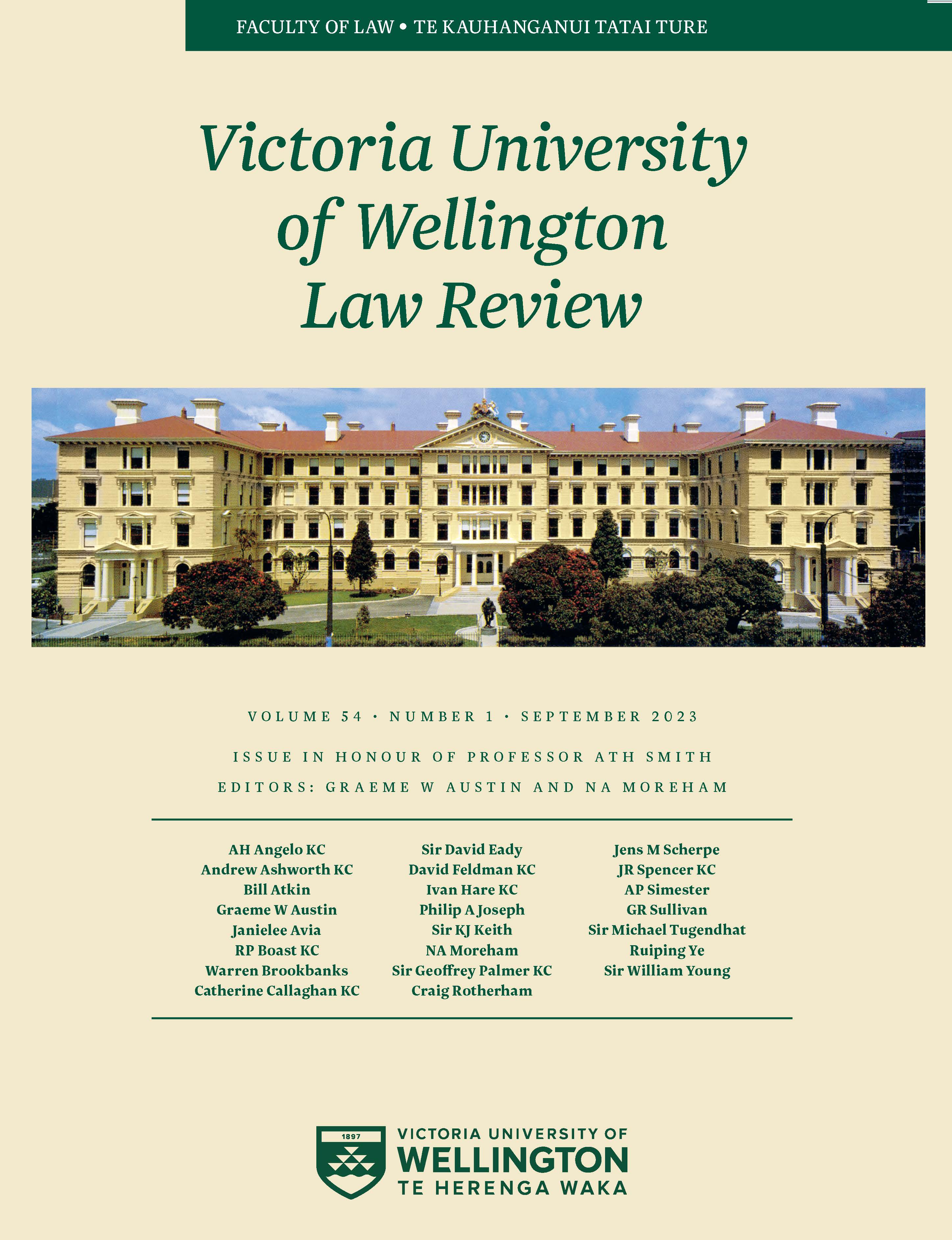Constructive Trusts and Theft
DOI:
https://doi.org/10.26686/vuwlr.v54i1.8447Abstract
The Theft Act 1968 (UK) marked a major reform of United Kingdom criminal law resulting in numerous offences being superseded by a broad crime of theft. The Act explicitly provided that theft extended to interferences with equitable property rights. While the extension of the offence to express trusts might be largely unproblematic, the possibility of it applying to trusts arising by operation of law has been more controversial. This article suggests that the issue is likely to arise less often than is commonly supposed. Many rights enforced by way of a constructive trust can only properly be regarded as initially giving rise to a mere equity that will mature into a full proprietary interest only following the exercise of a power of election and/or the intervention of a court. It follows that, prior to such steps being taken, assets affected by such an equity will not be "property belonging to another" for the purposes of the definition of theft under the Act. Nonetheless, the concerns regarding the extension of theft to constructive trusts are well founded. The reasons for providing that equitable proprietary rights arise by operation of law have little to do with sound rationales for characterising conduct as theft.
Downloads
Downloads
Published
How to Cite
Issue
Section
License
Authors retain copyright in their work published in the Victoria University of Wellington Law Review.


